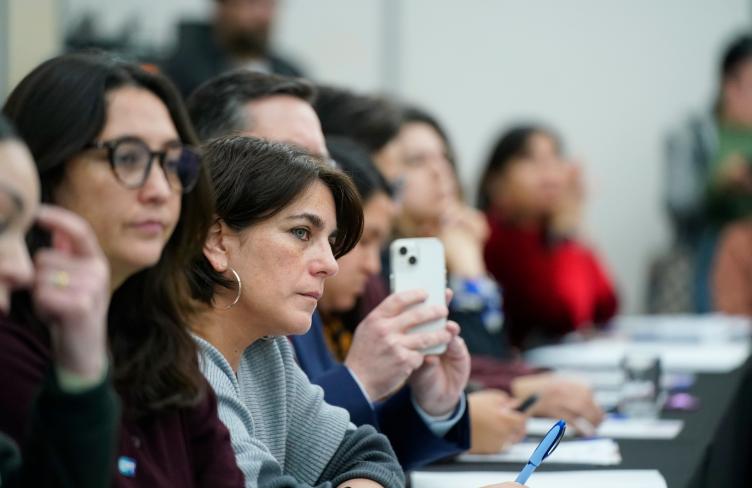
This blog is an edited extract of an interview with the French NPM, the Controller-General of Places of Deprivation of Liberty, on their Opinion of 25 May 2021 on the treatment of transgender persons in places of deprivation of liberty.
Transgender persons deprived of liberty face the constant risk of violence, discrimination, and abuse. In France, the Controller-General of Places of Deprivation of Liberty (CGLPL) addressed the issue of transgender rights in prison in an Opinion published in 2010. However, it became clear that a new Opinion was needed given the lack of improvement in places of detention, changes in terminology and new gender recognition laws in France.
Some of the challenges faced by trans persons are at the intersection of unresolved structural problems in places of deprivation of liberty, such as the balance between safety and dignity, the isolation of individuals in situation of vulnerability, as well as issues of gender diversity and sexuality, suicide prevention, among others.
On 25 May 2021, we published a new Opinion on the treatment of trans persons deprived of liberty. It is important to note that the 2010 Opinion focused only on incarcerated trans persons. In preparing a new Opinion it was important to extend this to other places of deprivation of liberty and to include the experiences of intersex and non-binary people.
The Opinion was a result of a comprehensive process that included reviewing letters received from transgender people deprived of liberty over the past decade. It also included input from meetings with associations working with incarcerated trans persons, information gathered from ministries and associations in charge places of detention, and exchanges with European experts, including the European Committee for the Prevention of Torture and Inhuman or Degrading Treatment or Punishment (CPT) and the APT. In addition, we reviewed relevant national and international documentation and undertook five visits devoted exclusively to this issue, conducted by two controllers, across different regions and types of institutions.
Our research revealed a lack of data on the numbers and locations of trans persons in detention, as well as a lack of training for personnel to address their specific needs and care. Further, there are few national guidelines in place and the 2016 law that depathologised the recognition of trans identity has not been applied to places of detention. So although people are no longer obliged to undergo gender reassignment to obtain a sex change in their civil status, this paradigm shift has not been translated into regulatory or legislative directives. Without data, training and clear directives, personnel in places of deprivation of liberty cannot adequately address the needs of trans persons, putting them at risk.
The guiding principle of the new Opinion is to reiterate the fact that trans identity is a matter of self-determination. Our central recommendation is that detaining authorities should always ask people what they require and then respond to these requirements, as far as possible. Based on this guiding principle, the Opinion focuses on the three types of transition: social, legal and medical.
Social transition: respecting gender identity
Social transition is about addressing people according to their chosen pronoun and name. These preferences should be respected in practice. Another important issue is body searches, in prison and during police custody. We recommend that persons be allowed to choose the gender of the officer who will search them. Similarly, when it comes to allocation, individuals should be asked to nominate their preferred ward. They should not be placed in solitary confinement because of their trans identity. We also have strong reservations about the use of wards that solely accommodate trans persons. However, we reaffirm the importance of meeting a person’s request to be accommodated in a ward where the majority of people are in a situation of vulnerability. We also address the issue of violence and reproductive sexuality, which must not be used as reasons to isolate people or limit their opportunities for social interaction. Finally, we support a trans person having access to all permitted items and clothing commonly associated with their chosen gender or marital status.
Legal transition: assisting those who wish to change their civil status
In France, the law has relaxed the criteria necessary to obtain a change of first name and sex in a person’s civil status. In practice, however, barriers remain. For instance, some people are excluded from this type of procedure, de jure (such as foreigners) or de facto (for example, they are unable to take administrative steps). In addition, those who are supposed to help them at the civil registry office are sometimes unaware or untrained about the new law. Our recommendations include training for civil servants and judges, as well as the need for increased cooperation between places of deprivation of liberty and LGBTI+ associations.
Medical transition: ensuring appropriate healthcare
Individuals can face challenges continuing hormone therapy or receiving post-operative care if they started their medical transition before entering a place of deprivation of liberty. We recommend the provision of ongoing and uninterrupted treatment. We also found that it is extremely difficult for a person to complete a full medical transition when it is initiated while in detention. We recommend that such transitions should be possible. And finally, we recommend that if detaining authorities are unable to respect a person’s gender identity and ensure their physical and psychological safety, or if a person is unable to pursue or begin a medical transition, an alternative to deprivation of liberty should be provided.
We have seen various positive outcomes since the Opinion was published in May 2021. The associations, and those directly affected by the issues, felt heard and recognised. The associations have used the Opinion in their collaboration with administrations, local and national authorities, and even in legal proceedings. We shared the Opinion with local directors, as well as the Ministers of Justice, Health, and the Interior, allowing us to contribute to their reflections on implementing necessary measures. Although the effects may not be immediately apparent at the local level, we hope this Opinion will expedite the implementation of measures to uphold the rights of trans persons deprived of liberty.
Internally, the Opinion has provided us with a stronger tool to promote and protect the rights of trans persons deprived of liberty. It addresses the challenges posed by the new legislation and new requirements, enabling us to respond more adequately and to incorporate these questions in our reports. By sharing our work to local authorities, we are better able to promote changes in their practices and encourage them to consider alternative options.


